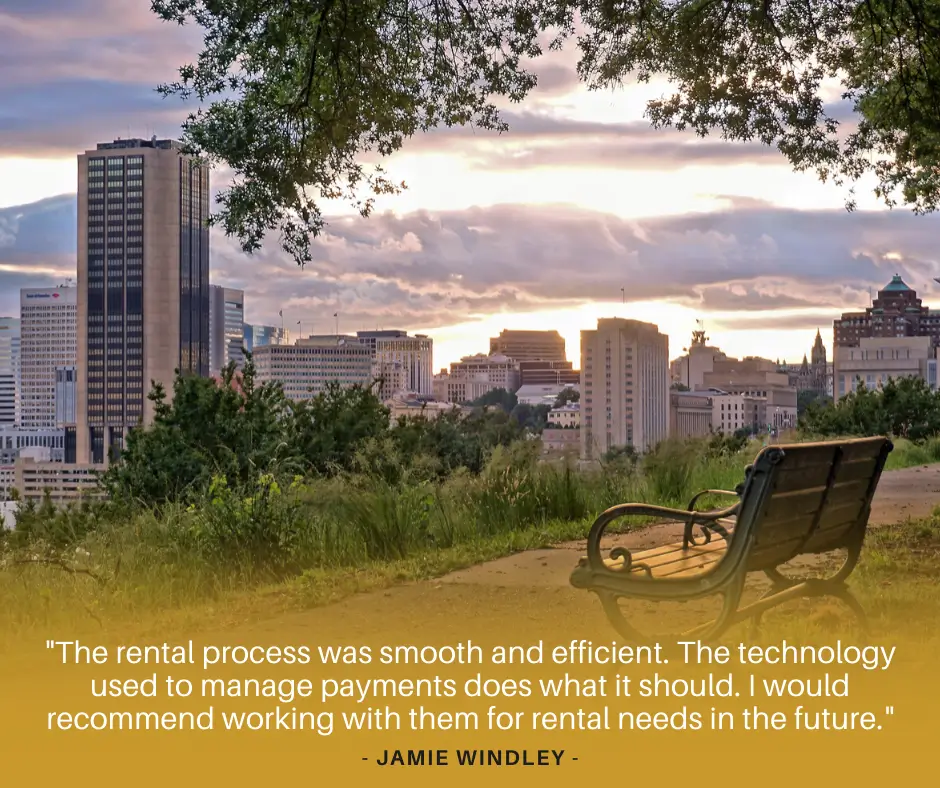Whether you own or rent property in Richmond, VA, your responsibilities extend beyond merely collecting rent. Conducting thorough inspections of rental properties is a vital aspect of effective property management, yet it’s frequently overlooked. These monthly inspections not only help maintain the condition of your rental unit but also ensure that your tenants adhere to their contractual obligations, ultimately safeguarding your financial interests.
It's crucial to know how to conduct rental inspections correctly and in accordance with local laws in Richmond. This article offers a complete landlord inspection checklist and advice to help you get through the process easily, no matter how long you've been an investor or how new you are to managing property.
Key Takeaways:
- Regular rental property inspections are crucial for maintaining property upkeep, addressing maintenance issues early, and ensuring tenant compliance with lease agreements.
- Providing proper notice before inspections and understanding Richmond’s local laws helps build a positive landlord-tenant relationship.
- Using a thorough rental property inspection checklist makes the entire inspection process smoother and protects your interests in the security deposit.
Why Regular Rental Property Inspections Matter
Your rental property is your most valuable asset as a property owner. It is essential to inspect rental properties on a regular basis to maintain their condition, identify potential safety issues, and ensure that tenants are adhering to the lease terms. These inspections, which can occur every three months, when a tenant moves in or out, or at any point during a lease, help you identify maintenance issues before they become too expensive to fix.
Landlords in Richmond can lawfully inspect occupied rental properties as long as they provide the required notice (typically 24 to 48 hours, depending on the lease conditions and local regulations). If you are familiar with Richmond's landlord-tenant rules, you can protect your property while still respecting the rights of your tenants.
Regular inspections also help tenants follow the rules of their leases, like making sure smoke detectors work, heating and cooling systems are kept up, and no lease breaches happen (like having pets without permission or renting out space). They also help keep the tenant's security deposit by making detailed inspection reports that show the state of the property.
Planning Your Rental Property Inspection: What You Need to Know
The inspection process begins well before the tenant moves into the rental unit. Here's how to get ready:
- Review the lease agreement and the laws in your area: Know the lease terms about inspections, like how much notice you must give before entering the rental. In Richmond, giving sufficient notice is required by law and helps earn tenants' trust.
- Set up the inspection: Work with your tenant to establish a time that works for both of you. Landlords can legally do drive-by inspections, but nothing beats a full walkthrough to get a complete picture of the property's condition.
- Check off items on a rental property inspection checklist: Make an inspection checklist that covers every element of the rental unit, inside and out, or use an existing one. You won't forget anything crucial if you use this checklist. It includes checking for smoke detectors and safety risks, as well as inspecting the plumbing, electrical outlets, windows, heating and cooling systems, and the exterior of the property.
The Landlord Inspection Checklist: What to Look For
Here’s a breakdown of key areas to cover during your inspection:
- Exterior of the Property: Look for damage to siding, roof, gutters, landscaping, and outdoor lighting. Check the condition of fences, walkways, and driveways.
- Interior Condition: Inspect walls, ceilings, floors, and windows for damage or signs of neglect. Verify that doors lock properly and check for leaks in bathrooms and kitchens.
- Safety Features: Confirm that smoke detectors and carbon monoxide detectors are installed and working. Check fire extinguishers, if applicable.
- Heating and Cooling Systems: Ensure HVAC units are functioning well to prevent tenant complaints and maintain property value.
- Maintenance Issues: Identify any early signs of maintenance problems like water stains, mold, pest infestations, or electrical issues.
- Tenant Compliance: Look for lease violations, such as unauthorized pets or excess occupants, and check that the tenant’s personal belongings do not block safety exits.
Conducting the Inspection: Best Practices for Landlords
When conducting inspections, always keep professionalism and tenant privacy in mind. Here are some tips:
- Provide Proper Notice: In Richmond, landlords must provide advance written notice before entering the rental unit—usually at least 24 hours unless it’s an emergency. This respects tenant privacy and helps avoid disputes.
- Be Thorough but Respectful: Use your inspection checklist to guide you but be mindful of the tenant’s personal belongings. Don’t open closed containers or closets without permission.
- Document Everything: Take notes and photos during the inspection. An inspection report with clear documentation helps you track the property’s condition over time and supports any security deposit disputes.
- Address Maintenance Issues Early: If you find problems, communicate promptly with your tenant about repairs to keep the property in good shape and maintain tenant satisfaction.
- Maintain a Positive Landlord-Tenant Relationship: Being transparent and respectful during inspections encourages tenant cooperation and helps ensure lease compliance.
Challenges You Might Face During Rental Inspections
While rental inspections are beneficial, landlords may face a few hurdles:
- Tenant Refusal: Some tenants might refuse or delay inspections, citing privacy concerns. Here, knowing your rights and responsibilities, backed by local laws, helps. If necessary, a property manager can mediate.
- Scheduling Conflicts: Tenants may have busy schedules. Being flexible and offering multiple time slots can ease this challenge.
- Distinguishing Normal Wear from Damage: Understanding the difference is key to fairly handling security deposits and maintenance expenses.
The Role of Property Managers in Rental Inspections
PMI Richmond and other professional property management companies do rental inspections for many property owners in Richmond. A property manager is an expert who makes sure that the rules are followed and conducts frequent inspections of rental properties quickly.
A property management company can assist with the entire inspection process, from providing adequate notice to maintaining the property's condition. It also helps landlords focus on investment growth while professionals handle tenant relations and property upkeep.
Keep Your Richmond Rental Property in Top Shape
Regular property inspections are a must for effective rental property management in Richmond, VA. They protect your investment, make sure your tenants follow the rules, and assist you in fixing problems before they get worse.
You can foster a strong connection with your tenants and achieve long-term rental success by using a detailed rental inspection checklist, providing proper notice to tenants, and maintaining accurate records of each inspection.
PMI Richmond can assist you if you require professional support with your rental property inspections or the entire rental cycle. Our experienced property management firm offers a wide range of services tailored to the Richmond market and its specific regulations.
To find out how we can help you safeguard and build your rental property portfolio, explore our services today.
Frequently Asked Questions (FAQs)
Q1: How much notice do I have to give tenants before a rental property inspection in Richmond, VA?
A: In Richmond, landlords must provide at least 24 hours’ written notice before entering the rental unit for inspections, unless it’s an emergency. Always check your lease agreement for specific terms.
Q2: What should I include in a rental property inspection checklist?
A: Your checklist should cover the property’s exterior, interior, safety features like smoke detectors, heating and cooling systems, plumbing, electrical outlets, and signs of maintenance issues or lease violations.
Q3: Can a tenant refuse a rental inspection?
A: Tenants generally cannot refuse inspections if proper notice is given and the request complies with local laws. If a tenant refuses, landlords may seek legal advice or assistance from a property management company.
Q4: How often should landlords conduct rental property inspections?
A: Routine inspections are often done quarterly or biannually, plus move-in and move-out inspections. Mid-lease inspections can also help address issues during the rental cycle.
Q5: What if I find damages during an inspection?
A: Document all damages with photos and notes in your inspection report. Communicate with the tenant about repairs and, if necessary, deduct repair costs from the tenant’s security deposit per lease terms.


